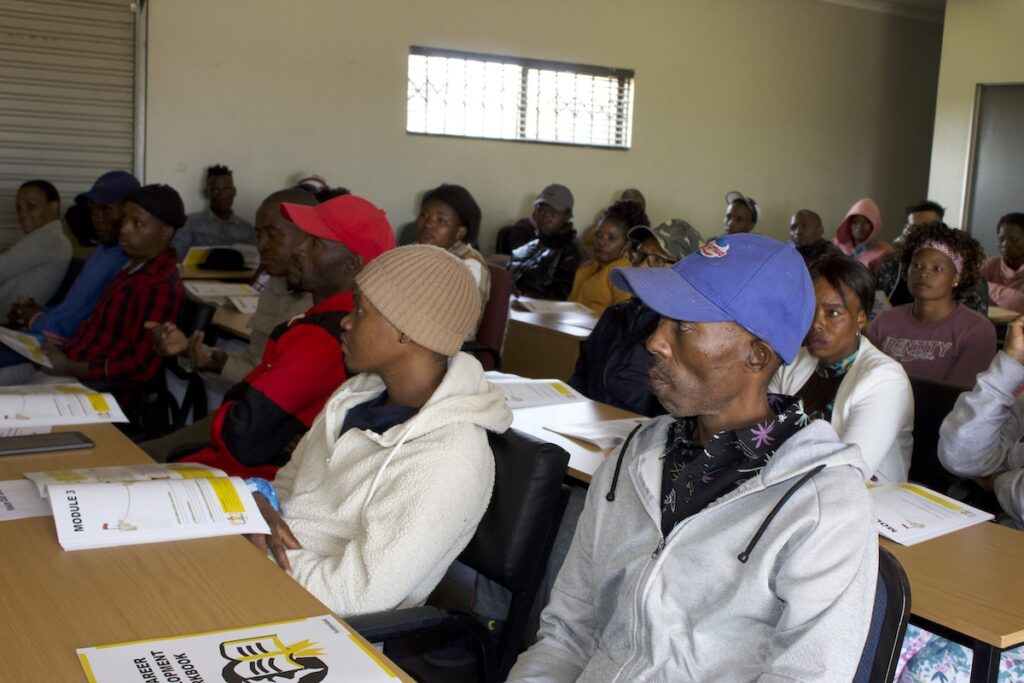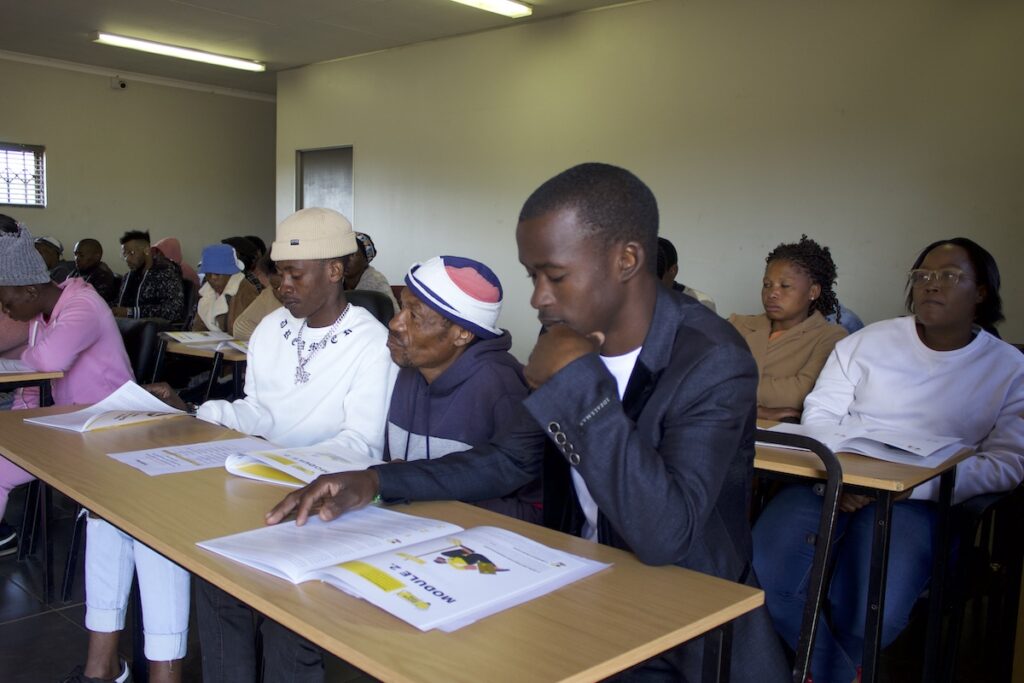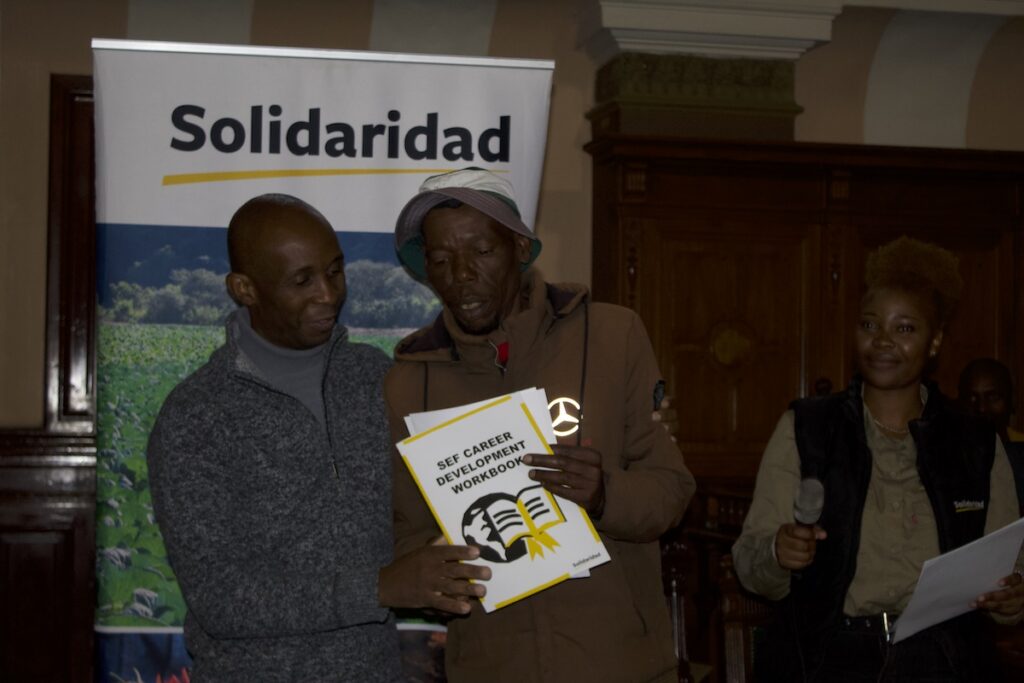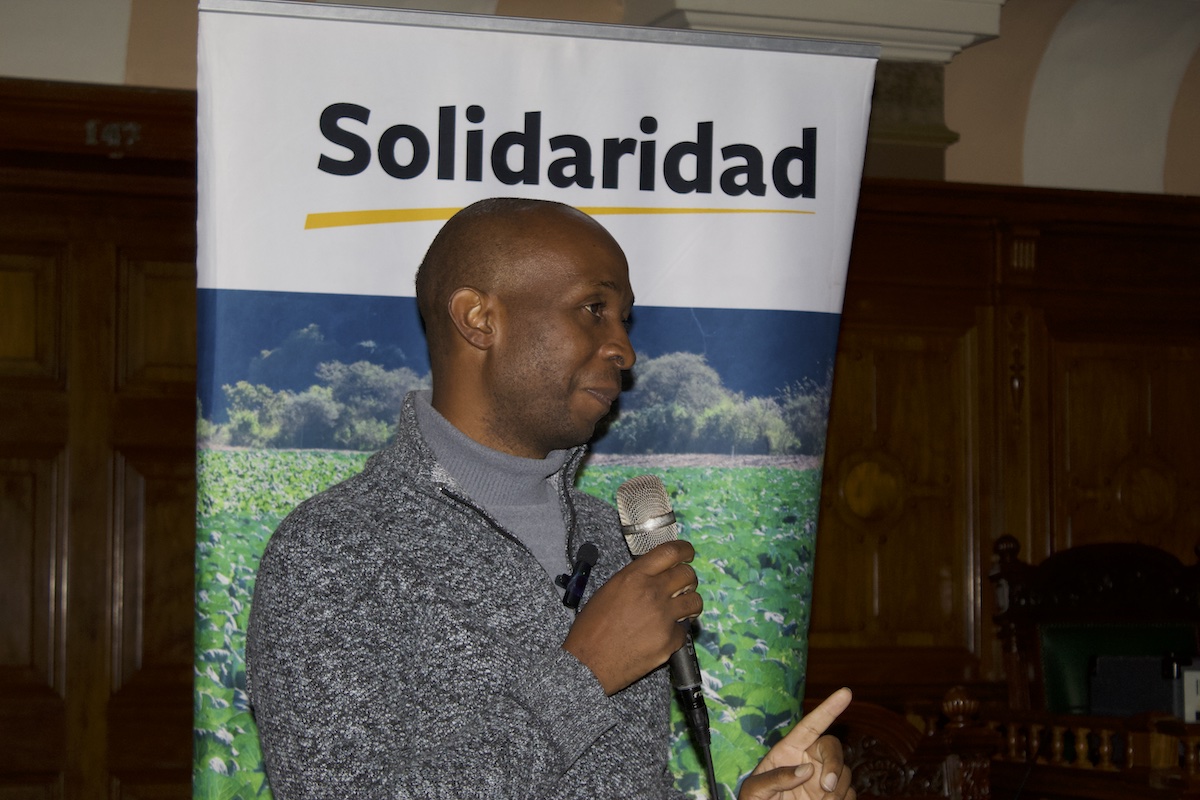Solidaridad Southern Africa’s Managing Director Shungu Kayemba speaking at a Social Employment Fund event in South Africa.
It is important to be realistic about the recurring nature of El Niño and its threats to food security in Southern Africa. Shocking statistics from the Food and Agriculture Organization (FAO) reveal that El Niño-induced droughts could slash maize yields by up to 60%, threatening the food security of millions. With extreme weather events increasing with climate change, the urgency to act is clear.
In Zimbabwe alone, over 5 million people are projected to face food shortages this year. Additionally, the Intergovernmental Panel on Climate Change (IPCC) warns that the frequency and intensity of such extreme weather events will only increase due to climate change.
In dealing with the humanitarian crises caused by El Niño in the past year, we must recognize that this is not an isolated occurrence. According to the World Meteorological Organization (WMO), the current El Niño is among the strongest on record, pushing global temperatures up by 1.5°C above pre-industrial levels. This has severe consequences for Southern Africa, particularly in the agricultural sector, which is already highly vulnerable.

Our future depends on the actions we take today to build resilience. Southern Africa must remain proactive and aware of our current and future challenges. Now and onwards, we need to raise the call for drought-tolerant seeds, climate-smart agricultural practices, conservation agriculture, training, and more – to build resilience among our smallholder farmers.
Our recent initiatives, including the Social Employment Fund (SEF) Project in South Africa, focus on equipping smallholder farmers with skills in precision agriculture and regenerative techniques, ensuring they can withstand future climatic shocks. Precision agriculture and regenerative techniques enhance farmers’ resilience against climate shocks by optimizing resource use, improving soil health, and increasing biodiversity, which collectively stabilize crop yields and reduce vulnerability to extreme weather events.

These efforts in training smallholder farmers with agronomic, planting, marketing, entrepreneurial, and life skills are crucial for enhancing the resilience of our agricultural sector. We are empowering Malawian smallholder farmers with cotton seed varieties that can stand the weather, and charting into new grounds by offering tailor-made insurance for Mozambican farmers. This is done in partnership with Kvuno (a social-inclusive business that utilizes digital tools and technology to empower smallholder farmers for wealth creation through farming) and Z’wardy (an adaptive platform using points to reward smallholder farmers for adopting climate smart practices).
Focusing on local and regional food systems is vital for regional governments, the private sector, and civil society to collaborate in building a resilient agricultural system in Southern Africa. Interventions needed include improved water management, modern agricultural technologies, diversified farming, local market development, and social safety nets. It also means acknowledging the reality of recurring and increasingly severe El Niño seasons. We must take decisive action now. This can safeguard our communities, secure food supplies, and promote sustainable development.

The stakes are high, and the need for preparedness has never been more urgent. Let us not wait for the next crisis to act. The time for preparedness is now. By investing in sustainable practices and resilient infrastructure, we can turn the tide against the recurrent threats posed by El Niño and ensure a more secure future for all.

